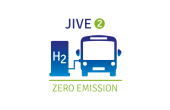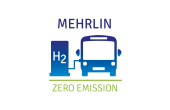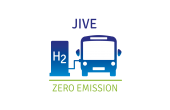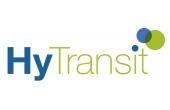Local actors may source match-funding for financing their fuel cell buses deployments from funding bodies at a regional,national or European level:
European level:
- The Fuel Cell and Hydrogen Joint Undertaking (FCH JU) is making a total budget of €1.33 billion (2014-2020) available to support hydrogen and fuel cell projects in the framework of Horizon 2020. The FCH-JU has funded several fuel cell buses in the past; the most recent ones are JIVE and JIVE 2.
- Another important source of funding is the EU Connecting Europe Facility (CEF) funding framework (formerly TEN-T). The CEF has a multi-billion annual budget and can be used to match-fund hydrogen infrastructures. The MEHRLIN project for instance will deploy seven hydrogen refuelling stations serving bus fleets in cities across Europe (UK, Germany, Netherlands, Italy).
- The European Investment Bank also can provide loans for large scale green transport projects through their Cleaner Transport Facility The Cleaner Transport Facility is an initiative to support the deployment of cleaner transport vehicles and their associated refuelling infrastructure. The programme supports the deployments of any alternative fuels vehicles, which means that fuel cell buses are eligible.
Riga was the first city to be granted a loan under the Cleaner Transport Facility. They will use the loan to deploy, among others, 10 fuel cell buses and the associated refuelling infastructure.
- Some EU regions may benefit from structural funds (such as European Regional Development Fund (ERDF)) which can be combined with e.g. FCH JU funding under specific circumstance (if they do not cover the same costs).
National level:
- The availability of national funding and the support level (e.g. % of match-finding) varies from country to country, but most EU countries have funding programmes which can be used to support fuel cell bus demonstrations
- For example funding can be sought from the Office for Low Emission Vehicles (OLEV) in the UK, or the Nationale Organisation Wasserstoff und Brennstoffzellentechnologie (NOW) programme in Germany).
Local level:
- EU regions and local authorities also have their own funding programmes, which can be used to co-support local projects and complement national/EU funding
For example the bus project in the Cologne region received co-financing from the region of North Rhine Westphalia.






